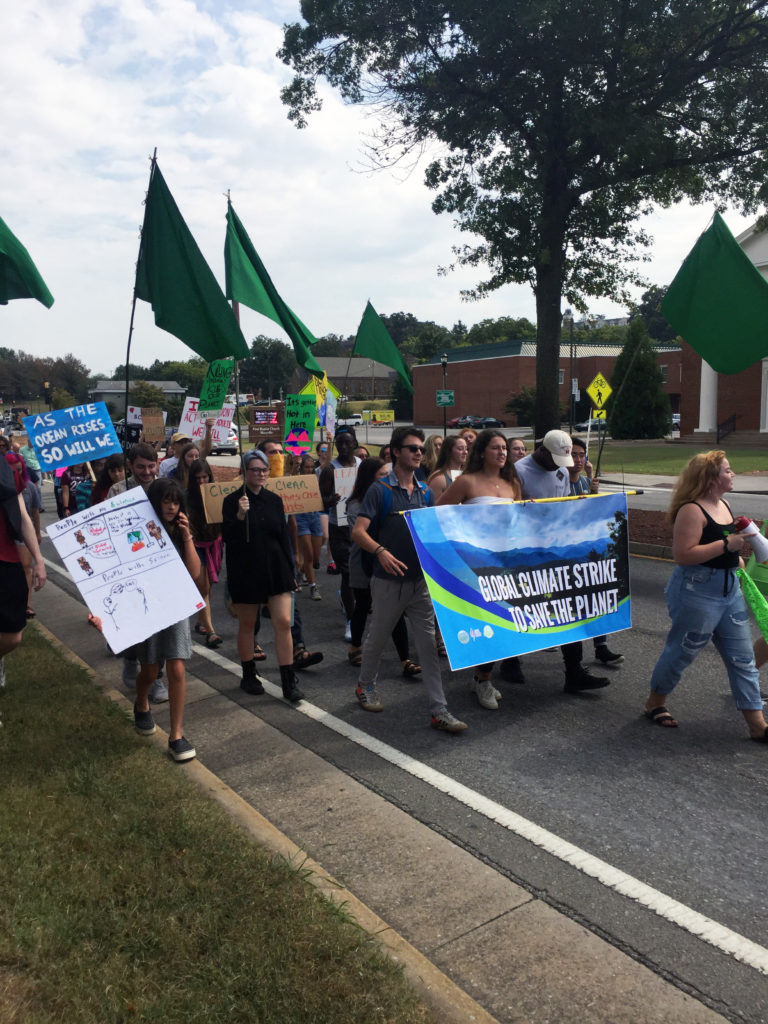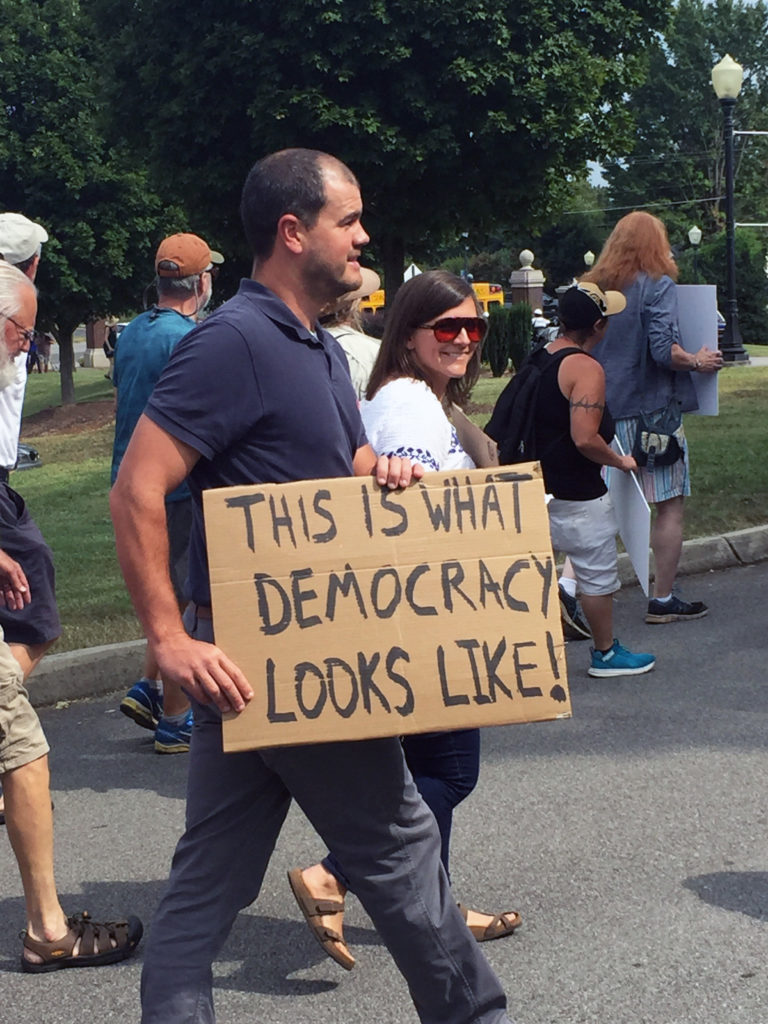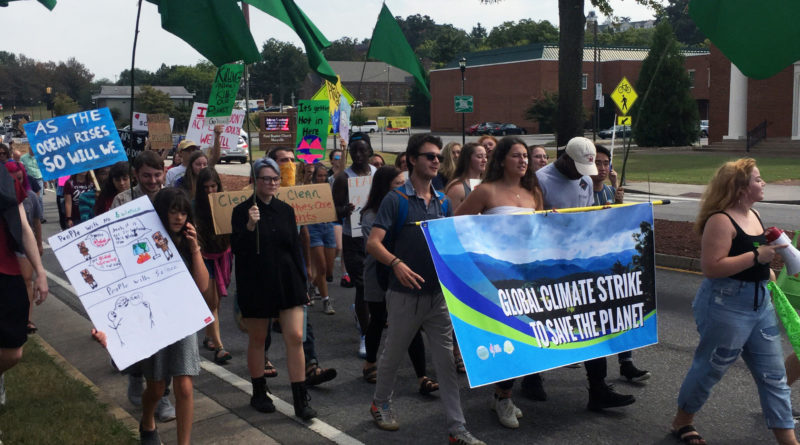Maryville College students and community members march for change
250 people gathered in the parking lot below the Clayton Center for the Arts at noon on Friday, Sept. 20 to contribute to a global movement. Greta Thunberg, a 16-year-old climate activist from Sweden, is responsible for climate strikes happening all over the world; she has coined the marches #fridaysforfuture.
Donia Lehman, a freshman biology major, initiated this faction of the global movement to grab the attention of politicians with the ultimate goal of turning the tide on Climate Change.

Photo Credit: Kim Trevathan
Overall, the strike has been youth-led, and the march in Maryville was no exception. Young members of the community were ushered to the front of the crowd.
Participants set a rhythm on handheld drums, Maryville City Police carved the path on West Lamar Alexander Parkway, and community youth led the mile-long march to New Providence Presbyterian Church.
Along the way, people energetically brandished signs reading, “as the ocean rises so will we” and “if you don’t act like adults, then we will.” Meanwhile, Lehman led chants from the front of the group: “fossil fuels have got to go,” “our house is on fire,” “this is what Democracy looks like,” and “don’t let our planet die.”
Maryville College students were not the only school affiliates involved, for multiple faculty members attended as well. The strike was a spectacle for a small town such as Maryville in the eyes of Dr. Daniel Klingensmith and Dr. Andrew Gunnoe. Klingensmith, a former history professor, newly appointed dean of the college, and strike participant was at the march.

Photo Credit: Kim Trevathan
“What was different about this, in addition to the topic, was the heightened presence of young people, and the fact that it got a good crowd of younger, middle-aged and elder folks to show up, on a weekday,” Klingensmith said. “That doesn’t happen very often in a town our size.”
Gunnoe, a Sociology professor at Maryville College who is also no stranger to social movements was encouraged by the success of his first Maryville-centric movement.
The most noteworthy presence was that of Jackie Hill, a County Commissioner. The ultimate goal of receiving political attention was achieved to some degree. Both Klingensmith and Gunnoe expressed the importance of the local government’s presence.
“The city and county governments are typically juggling a number of issues at a time,” Klingensmith said. “But the very fact that one of them was there is itself significant—it shows that this issue is assuming greater importance in public debate.” Gunnoe shared Klingensmith’s optimism concerning the County Commissioner’s presence, but he ultimately desires a further increase in awareness.
“I think that it was great that somebody was there. I think that it was unfortunate that more were not there … the fact that there were not more there suggests the need for political change,” Klingensmith said. “People need to understand the urgency.” Overall, the strike serves as an example of progress, not perfection.
“The strike is evidence that there has been a significant change of opinion compared to just a few years ago,” Klingensmith said. Gunnoe said he views the strike as a “part of [his] growing optimism and hope for this younger generation.”
Maryville College maintains a progressive reputation, and the Climate Strike was yet another example of its students and faculty attempting to fulfill Isaac Anderson’s goal to “do good on the largest possible scale.” People are calling for change internationally, and Maryville has joined the pursuit of a more hopeful and sustainable future.

